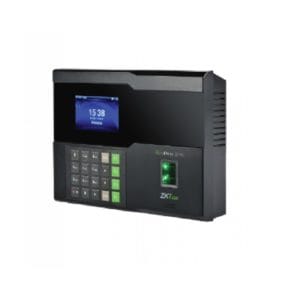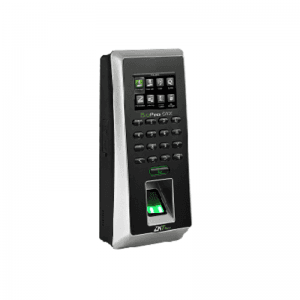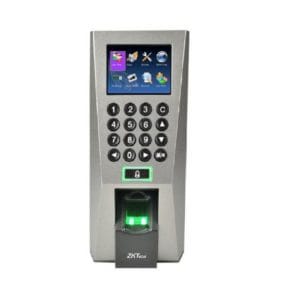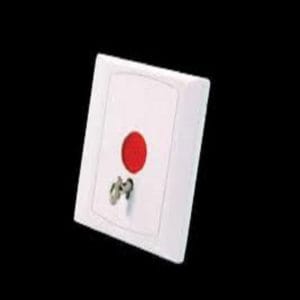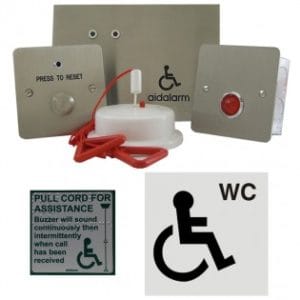SHOPPING INFORMATION
Helpline Security Supplies:+971 (0)4 570 7145
Order take 2-3 workings days to reach it’s destination.
You can add your tracking ID to track my order tab right next to cart ,you will get results.
We will accept item(s) for exchange or refund provided they are returned as new, i.e. are unworn and have been returned with the original packaging, including tags, within 7 days of purchase. Returns that are damaged (including the packaging), soiled or altered may not be accepted and may be returned to the customer. Please fill out our “Return form” and send us pictures of the item.
Credit Card, PayPal, Cash on Delivery.
You can check your order status at your account dashboard.
At Security Supplies, we specialize in dealing with the latest products in CCTV technology. From CCTV Cameras to complete CCTV kits as well as CCTV parts, we house world-renowned and reliable brands like HIKVision, Dahua, Samsung, etc.
Safety is really essential and we try to make your business a little more safe for your lucky employees every month where we gift them a voucher worth AED 200. It’s just a token of love and wishes from the entire team at securitysupplies.ae.
Yes, it’s completely safe to add card. We ensure safety of your assets. Customers asset’s safety and satisfaction is our first priority.
No, we don’t deliver outside UAE but we will get back to you with happy news soon, stay tuned.
Register your Account, Sign In, Select Product, Add to Cart, Proceed
No Limit, You can buy as much product as you desire to buy.
Yes, If you have ordered items to be personalized, please allow 2 days for this to be prepared before dispatch. We will always do our best to prepare items as quickly as possible.
You can add your products one by one to cart and proceed to order at once.
Our team is working day and night to provide best product and services to you. We are available 24/7.
Please contact our Customer Care Team at [email protected] or call +04-570 7145 anytime for any query.
There is no closing time of our store. We available 24 hours week and proceeding your orders and queries with the best of our services.
We created security supplies, a premiere, one-stop-shop for all of your security needs. We embrace the “secure your safety needs” concept and ensure that we have everything you could possibly need to secure your business. We are truly a one-stop-shop for all of your needs.
Yes, we allow PayPal method.
Value-added tax, or VAT, is added to a product at every point of the supply chain where value is added to it.
PRODUCT INFORMATION
Security Supplies is one of the biggest online store with security and safety products. With the tagline ” Secure your Safety Needs”, we carry many brands with various categories. Our range includes everything a system needs for security solutions, like CCTV Cameras, Alarm Systems, Biometric Attendance Systems, Door Locks and many more.
The main three types of security systems are given
1- CCTV Cameras
2- Proper Smoke Alarm
3- Wireless Alarm system
Security is always an essential factor in any business. All security systems work well to meet the security needs of any small business. Choose a perfect security system with CCTV cameras and wireless alarms, which monitor with a well-known security plan.
A significant number of security devices are used as safety tools—some modern safety tools a given below.
1- Baggage Scanners
2- Door Metal detectors
3- Vehicle Inspection Detector.
Closed-circuit television, or CCTV as it is more frequently referred to, is a form of video surveillance. Broadcasts that are “closed-circuit” usually only reach a small number of monitors, unlike “ordinary” television, which is aired to the general public.
Without an internet connection, you can set up cameras. Cameras that exclusively record locally, such as to a micro-SD card or hard disc, are standard.
A Comprehensive Guide to the Best Security Cameras for Your Home Ring – Best DIY Installation. Lurex – Best Overall Security Cameras. ADT – Most Comprehensive Security System\ with Cameras.
Consumers who shop online are exposed to security risks. Malicious websites often contain pop-up ads that advertise some incredible promotions.
Adobe’s Smart Security Kit is an excellent place to start for new customers. As a starter package, this is ideal for anyone looking for a simple and easy-to-use system. Abode’s easy-to-use self-monitoring plan can control your system via a mobile app.
Investing in a home security system can give you peace of mind knowing your home is safe while you’re away or asleep at night.
Vivint is the most effective total security system. In terms of wireless security systems, Vivint has the most significant equipment, professional installation, 24/7 monitoring, innovative home features, and cutting-edge security technology.
A reliable system is highly secure, easy to operate, and moderately priced. Furthermore, it is adaptable, expandable, and offers special warning and reporting features.
Reducing the Risk of Data Breach Don’t just secure the perimeter; safeguard the data. Insider threats should be taken seriously. All devices should be encrypted—for security testing. Remove unnecessary files and data. More money and effort should be invested in Cybersecurity. Set up passwords that are hard to guess. Keep your software up-to-date.
The high-end equipment, innovative, intelligent home capabilities, and ability to fight burglary made Vivint the top security system. Other options should not be discounted, however. The advantages of each are unique.
Ring Alarm outshines other affordable security systems by delivering the most acceptable monitoring price in the lot. At $20 a month, it’s a cheap plan, but it also has the full benefits of 60-day cloud video storage and a lifetime warranty that other brands can’t match.
As part of data security, access control dictates who can access and use company data and resources, user identity is verified through authentication and authorization in access control policies, ensuring that only authorized users can access company data.
You can connect CCTV cameras and see them remotely in two ways: connecting IP cameras over the Internet using an APP/Client or setting up port forwarding.
Advantage: It is simple to find out which objects a user has access to and cancel that user’s access to any or all of those items.
Disadvantage: it can be challenging for an individual to determine who has access to a specific thing and even more difficult for a group of people to remove access to that object altogether.
CCTV can save site owners money through crime prevention if monitored remotely, making it a much more effective measure than a traditional CCTV camera. Remote monitoring allows security professionals to respond quickly to incidents and monitor the situation 24 hours a day.
You can use the timestamps provided by your access control software and video recording and management software to integrate IP door controls into your network. When a camera is placed near the door, it can see people entering and exiting.
A CCTV (closed-circuit television) camera is a type of video camera that is designed to capture and transmit video footage to a specific location, typically for security or surveillance purposes. Unlike broadcast television, which transmits its signal to the general public, CCTV cameras are used in closed circuits, meaning that the video footage is only available to authorized personnel with access to the network.
CCTV cameras are commonly used in public spaces, such as airports, train stations, banks, shopping centres, private homes, businesses, and other organizations. They are typically installed in strategic locations to monitor activity and deter crime. They may be used to identify perpetrators of criminal acts and provide evidence in legal proceedings.
In addition to security and surveillance, CCTV cameras are used for various purposes, such as traffic monitoring, wildlife observation, and industrial process control. They may be operated manually or programmed to work automatically and may be connected to a network or operated independently.
CCTV cameras capture video footage of an area and transmit it to a recording device or a monitor. The essential components of a CCTV system include a camera, a lens, a recording device, and a monitor.
The camera captures the video footage, which is then processed by an image sensor that converts the optical image into an electrical signal. The lens focuses the image onto the image sensor, and the camera adjusts the light entering the lens through an aperture to ensure a clear and well-lit image.
The electrical signal is then transmitted to a recording device, such as a digital video recorder (DVR) or a network video recorder (NVR), which converts the analogue signal into a digital format for storage. The recording device can be set to record continuously or triggered by motion detection or other events.
The video footage can be viewed live on a monitor connected to the recording device or remotely accessed over a network or the internet. Many CCTV systems also include software that allows remote access and monitoring and the ability to search and playback recorded footage.
Some advanced CCTV cameras also have features such as facial recognition, license plate recognition, and advanced analytics that can detect unusual behavior or patterns and trigger alarms or alerts to security personnel.
Several types of CCTV (closed-circuit television) cameras are available. Here are some of the most common types:
Dome cameras: These cameras are named after their shape and are designed to be discreet. They are often used indoors and can rotate 360 degrees to cover a wide area.
Bullet cameras: These cameras are cylindrical and are often used in outdoor settings. They are weatherproof and have a more extended range than dome cameras.
PTZ cameras: PTZ stands for pan-tilt-zoom, which means that these cameras can move horizontally and vertically and zoom in on specific areas. They are often used in large indoor and outdoor spaces.
Thermal cameras use thermal imaging technology to detect heat signatures, making them useful in low-light or no-light environments. They are often used in perimeter security.
IP cameras: These cameras connect to the internet and can be accessed remotely, allowing for remote monitoring and management. They are often used in business settings.
Covert cameras: These cameras are designed to be hidden and can be disguised as everyday objects like clocks or smoke detectors. They are often used in undercover investigations.
Panoramic cameras have a wide-angle lens and can capture a 360-degree view of a room or area. They are often used in large spaces like warehouses or shopping centers.
CCTV cameras have become increasingly popular over the past few years, with businesses and homeowners alike taking advantage of their many benefits. CCTV cameras provide high security by allowing you to monitor your property in real time. This can help to deter potential criminals and provide evidence for law enforcement. CCTV cameras also offer peace of mind, letting you know your property is safe and secure. Additionally, CCTV cameras can monitor employee performance, ensuring that employees adhere to company policies and regulations. They can also provide a record of activities that can be used for training and development purposes. Finally, CCTV cameras can be useful in settling disputes or investigating incidents, as they can provide an accurate record of events.
Choosing the right CCTV camera involves considering several factors, including your security needs, the location where the camera will be installed, and the features of the camera itself. Here are some key considerations to help you choose the right CCTV camera:
Purpose: First, determine the purpose of the CCTV camera. Do you need it for indoor or outdoor surveillance? Will it be used to monitor your home or business? Do you need it to capture faces or license plates? Knowing the purpose will help you choose the right type of camera.
Camera Type: There are several types of CCTV cameras available, including dome, bullet, and PTZ (pan-tilt-zoom) cameras. Dome cameras are often used for indoor surveillance and are less intrusive, while bullet cameras are more visible and can be used for indoor and outdoor surveillance. PTZ cameras are often used in larger areas where the camera needs to move and zoom in on specific areas.
Resolution: The camera’s resolution will determine the quality of the footage captured. Higher-resolution cameras will provide clearer images but require more storage space. Consider the area you want to monitor and choose a camera with a resolution that suits your needs.
Night Vision: If you need the camera to work in low-light or no-light conditions, choose a camera with night vision capabilities. The camera should have infrared LEDs that provide illumination in the dark.
Connectivity: Consider how the camera will connect to your surveillance system. Wired cameras are more reliable, but they require more installation work. Wireless cameras are easier to install but can be prone to interference.
Storage: Choose a camera with the right storage space for your needs. Some cameras have built-in storage, while others require external or cloud storage.
Budget: Finally, consider your budget. CCTV cameras can range from very affordable to very expensive. Determine your budget and choose a camera that meets your needs and fits within your budget.
By considering these factors, you can choose the right CCTV camera that will provide the level of security you need.
Yes, CCTV cameras can be hacked. CCTV cameras are connected to the internet or a network, and any device connected to the internet is potentially vulnerable to hacking. There are several ways in which CCTV cameras can be hacked, including exploiting vulnerabilities in the camera’s software, accessing the camera’s default login credentials, or gaining access to the network the camera is connected to.
To reduce the risk of CCTV cameras being hacked, it’s important to follow security best practices, such as changing the default login credentials, keeping the camera’s software up to date with the latest security patches, and using a strong and secure Wi-Fi network. Additionally, it’s important to monitor the CCTV camera’s activity logs regularly and to be aware of any suspicious activity or unauthorized access.








